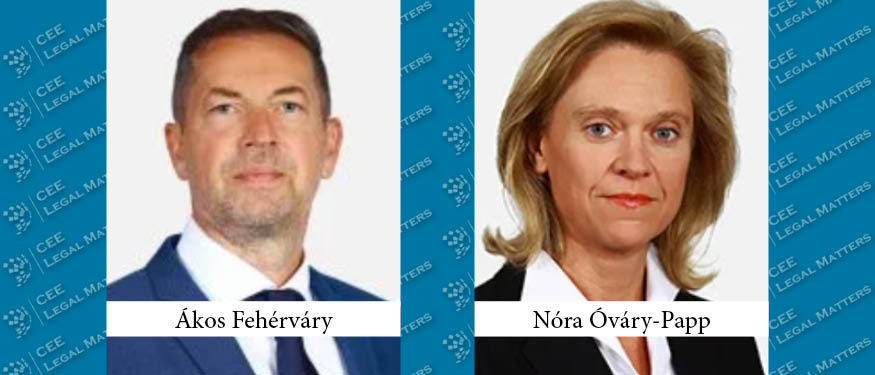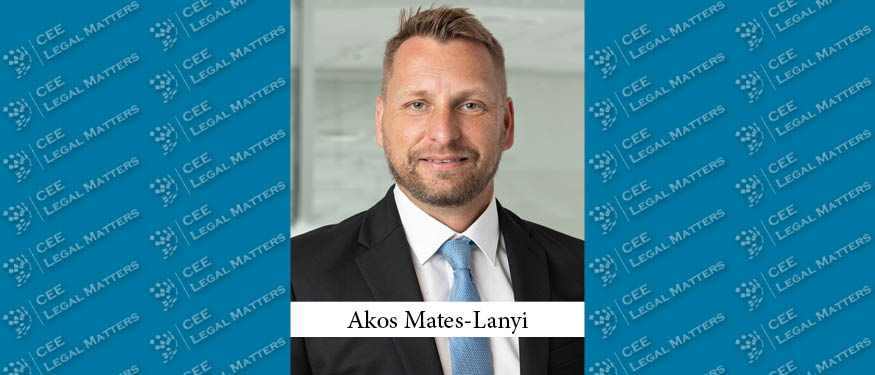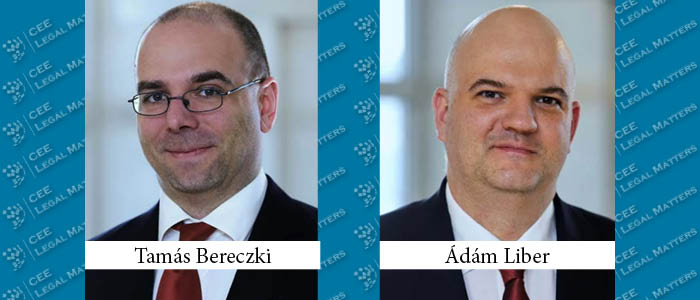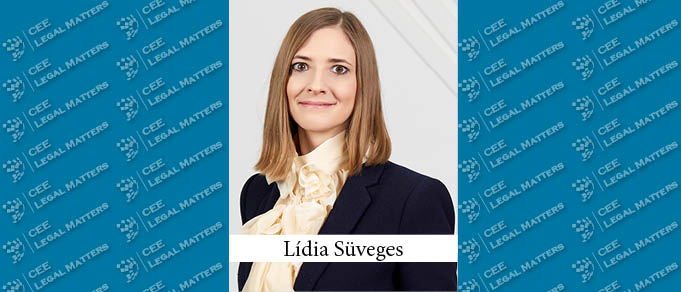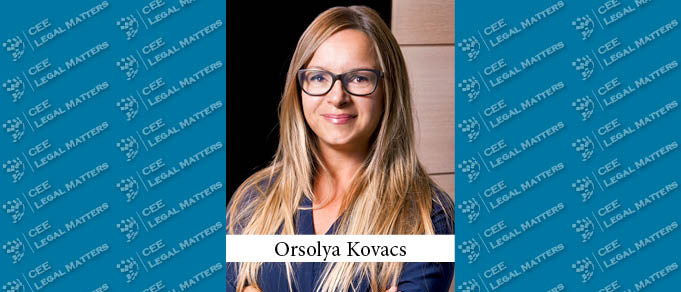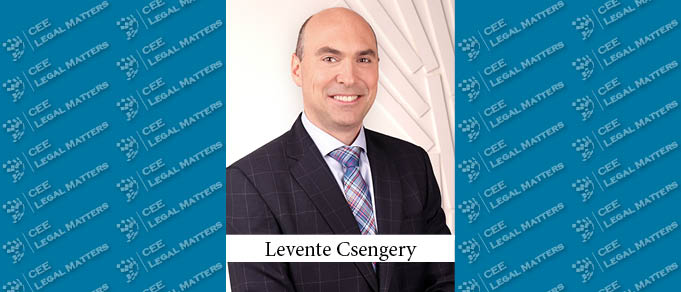CMS has advised K&H Bank on the refinancing of the solar portfolio consisting of Obton Group PV plants situated on 15 different locations across Hungary, with a total installed DC capacity of 71.107 megawatts. Forgo, Damjanovic & Partners reportedly advised Obton Group.
Restrictions on the Employment of Migrant Workers
Starting 1 January 2025, only citizens of Georgia and Armenia will be eligible for residence permits for the purpose of employment and guest worker residence permits. This marks a significant tightening of the previous rules, which allowed citizens of 10 countries to obtain guest worker residence permits and had no such restrictions for residence permits for the purpose of employment. Although these changes do not affect currently valid permits, the new rules will apply to all new permit issuances
Akos Mates-Lanyi Joins Taylor Wessing’s Budapest Office as Partner
Former Dentons Counsel Akos Mates-Lanyi has joined Taylor Wessing’s Budapest office as a Partner in the firm’s corporate, M&A, and capital markets teams.
New Cybersecurity Laws in Hungary
On December 20, 2024, Hungary has enacted two new cybersecurity laws, namely the Act No. LXIX of 2024 on Hungary's Cybersecurity ("2024 Cybersecurity Act"), which replaces the former national implementation of the NIS2 Directive, and the Act No. LXXXIV of 2024 on the Resilience of Critical Entities (“The Act on the Resilience of Critical Entities”), re-implementing Directive (EU) 2022/2557 on the resilience of critical entities in Hungary.
Szabo Kelemen & Partners Andersen Attorneys, Kinstellar, ODI Law, Isailovic & Partners and ODL Lukman Advise on BSP Energy Exchange, HUPX Hungarian Power Exchange, and SEEPEX Merger
Szabo Kelemen & Partners Andersen Attorneys has advised ADEX on the merger of BSP Energy Exchange, HUPX Hungarian Power Exchange, and SEEPEX. Kinstellar and ODI Law advised HUPX and the Hungarian Transmission System Operator Mavir on the deal. Isailovic & Partners advised SEEPEX. Lukman advised ELES and BPS on the deal.
Database of Building Materials to be Set Up in Hungary
In November 2024, multiple sources reported that the Hungarian government is considering the introduction of significant construction regulations in 2026, based on a leaked draft.
CMS and DLA Piper Advise on Tozsdepalota's Sale of Tozsdepalota Building to Granit Asset Management
CMS has advised Tozsdepalota on its sale of the Tozsdepalota Building. DLA Piper advised the buyers, Granit Asset Management.
CMS and Bird & Bird Advise on Egis' Acquisition of Dermatological Product Line from Teva
CMS has advised Egis Pharmaceuticals on its acquisition of a dermatological product line from Teva Pharmaceutical Industries. Bird & Bird reportedly Teva.
Amendment of Energy Related Acts from 1 January 2025
A bill on the amendment of certain energy-related laws was submitted to the Hungarian Parliament at the end of October 2024. Among others, the bill would amend the following laws from 1 January 2025: the Mining Act, the District Heating Services Act, the Electricity Act, the Environmental Product Charges Act and the Waste Act.
Solar Panel Owners Appeal to the Constitutional Court
1,111 complaints have been submitted to the Constitutional Court of Hungary by domestic solar panel users, who argue that the change in the balance accounting system is causing them significant financial disadvantages. Specifically, the amendment introduces a monthly gross settlement after 10 years of solar panel installation.
The People Puzzle: Labor Shortages on the Rise in CEE
Labor shortages have emerged as a pressing issue across CEE, prompting diverse responses from governments, businesses, and the public as they navigate the challenges of workforce gaps and economic sustainability.
The Corner Office: Conference, Anyone?
In The Corner Office, we ask Managing Partners at law firms across Central and Eastern Europe about their backgrounds, strategies, and responsibilities. As sunny days recede, the fall conference season is upon us, so we asked: How do you determine which Partner attends which events?
Hungary: Accommodation Services in Tax Spotlight
One of the sectors contributing the most to the Hungarian GDP is tourism, with nearly 16 million guests spending more than 41 million overnight stays in Hungary in 2023. According to the data of the Hungarian Central Statistical Office, foreign tourists spent 11,866,669 overnight stays in Hungary in 2023, of which 59.20% chose hotels, 32.36% stayed overnight in private and other accommodations, and 8.44% chose community accommodations.
Closing: Standard Motor Products' Acquisition of Nissens Automotive Now Closed
On December 12, 2024, Wolf Theiss announced that Standard Motor Products' acquisition of Nissens Automotive (as reported by CEE Legal Matters on July 23, 2024) has closed.
Breaking Barriers: Gender Balance in Corporate Leadership
Hungary is gearing up for a groundbreaking shift in corporate governance, with the proposed law aimed at improving gender representation in leadership positions at publicly traded companies. By implementing the relevant EU directive, the proposed law does not only seek to address long-standing gender imbalances but still promotes greater access of women to the labor market participation.
Parliament to Discuss Amendments to Several Major Laws at the End of the Year
The Hungarian Parliament is debating several major laws at the end of 2024, including amendments to the Act on the election of the Members of the Parliament (‘Election Act’), another amendment to the Fundamental Law of Hungary and new rules on hate speech.
Autumn Tax Package in Hungary
The Hungarian Parliament approved the autumn tax package on 26 November 2024. The amendments introduce significant changes to direct and indirect taxes alike, the most important changes are summarized below.
Lakatos, Koves & Partners Advises Ceva-Phylaxia on Vaccine Production Facility Establishment
Lakatos, Koves & Partners has advised Ceva-Phylaxia on establishing a new vaccine production facility in Monor, Hungary.


